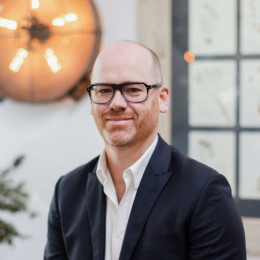A compliment can brighten someone’s day, but have you thought how they play into your consultations?
“And she even complimented my skin! Usually, they just tell me what I’m doing wrong.” This was a conversation between myself and a colleague who tried out a new spa joint. The simple praise about her hydration levels shifted her approach to the treatment. “It was SO lovely,” she raved. She walked out of there feeling lighter because she heard some kind words about her skin. It begs the question, why are compliments rare in the aesthetics industry? They don’t cost a thing.
Rachael Lupton, National Sales Manager at Jurlique, believes it boils down to how therapists are taught to treat the skin. “Beauty therapy training focuses on identifying skin conditions and understanding how they occur. Picking apart the negatives is often the only way therapist are taught to analyse the skin, and therefore, miss the opportunity to praise healthy skin,” Rachael said.
Bare it all
As beauty therapists, you are treating more than just skin. Confidence mentor, Dr Katherine Iscoe, says clients expose feelings about their appearance when they visit you, and this can be uncomfortable. Studies show that skin conditions can increase the prevalence of depression and anxiety, and can even affect employment opportunities.
Gry Tømte, Founder of HÜD Skin + Body, is an advocate for mental health within the industry, and she understands the mental struggles skin issues like acne cause, having dealt with it herself.
“We need to remember that we see people in their most vulnerable, naked state. We mustn’t lose sight of the responsibility and impact we have on our clients both positive and negative,” Gry said.
Don’t have anything nice to say? Don’t say it at all
Dr Iscoe says compliments minimise any anxiety a client might feel during the consult by shifting the social ranking. You’re in a position of power, and praise can level the playing field. Research also shows compliments engage the same part of the brain as receiving a cash reward. Since behaviour which gets rewarded gets repeated, this could lead to increased loyalty to your business. However, Dr Iscoe also warns giving flattery for the sake of it will do more harm than good.
“Faux flattery is highly transparent. Unless you’re saying something from the heart, don’t. It will backfire, and likely lead to patient dissatisfaction, or worse, a bad public review,” she said.
Glass half-full
Rachael says Jurlique therapists love to praise healthy skin when they come across it, but the reality is not everyone has a perfect complexion. This still doesn’t mean you can’t offer compliments in your consultations or treatments.
“It’s important to praise your clients on the steps they have taken to help their situation. When we focus on a positive outcome, rather than on what’s wrong, I feel clients are much more likely to get on board with the journey,” Gry said.
This approach can be healthier in the long run too. Positive feedback based on behaviour is more constructive than purely appearance-based compliments, as it doesn’t reinforce that self-esteem only comes in the form of external validation.
“The client will usually know what has worked and what hasn’t, no need to rub it in,” Gry adds.
Mind games
Feeling great in your skin often has nothing to do with the way you look. Gry wishes she had a penny for every time a client saw a face full of blackheads, while she saw normal pores. It’s always better to proceed with empathy during a consult. Irrespective of whether you have nine ‘helpful’ suggestions on where they can improve, you’re in the business of making people feel good about themselves.
“If you were treating a patient who was blind, would there be a difference in how they felt about themselves pre and post-treatment? If the answer is no, you haven’t done your job,” Dr Iscoe finishes.
DID YOU KNOW
There are 5 ways you can catch up with SPA+CLINIC?
- Our quarterly print magazine, delivered to your door. Subscribe here.
- Our website, which is updated daily with its own completely unique content and breaking news.
- Our weekly newsletter – free to your inbox! Subscribe here.
- Our digital magazine – click here to view previous issues.
- Our social media – see daily updates on our Instagram, Facebook & Linkedin





